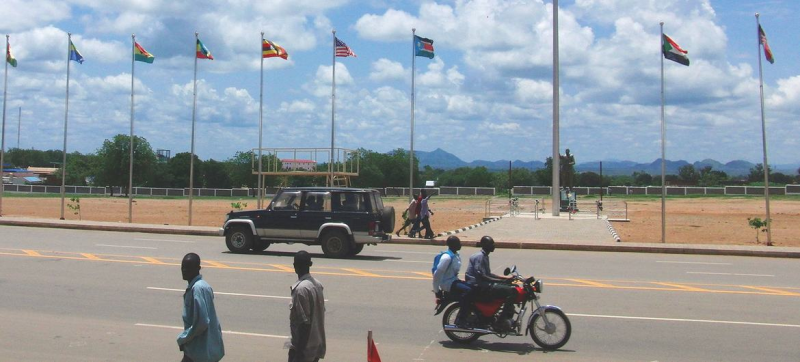- Bangladesh Faces $1.25 Billion Export Loss from US Tariffs |
- Israel Expands Gaza Assault as UN Warns of ‘Genocide’ |
- World Ozone Day Highlights Progress and Future Action |
- DG Health Services gives 12 directives to treat dengue cases |
- Stock market shows recovery as investors back: DSE chairman |
Government Corruption Drives Human Rights Crisis in South Sudan

Vehicles pass through John Garang Mausoleum Square in Juba, South Sudan.
In South Sudan, “systemic government corruption” and “brazen predation” by political elites have created a human rights crisis that requires urgent attention, the UN Commission on Human Rights in the country said in a report released Tuesday.
Based on two years of independent investigation, the report details how oil and non-oil revenues are siphoned off through opaque schemes and politically connected contracts, while millions of South Sudanese are denied access to basic services.
“Our report tells the story of the plundering of a nation: corruption is not incidental, it is the engine of South Sudan’s decline,” said Yasmin Sooka, Chair of the Commission. “It is driving hunger, collapsing health systems, causing preventable deaths, and fuelling deadly armed conflict over resources.”
Since gaining independence in 2011, South Sudan has carried a legacy of civil war, state repression, and poverty. Fourteen years on, ruling elites still compete for control over natural resources. The report found that oil inflows alone have exceeded $25.2 billion, yet minimal funds reach essential services. Education, health, and justice systems remain in crisis.
“The diversions are not abstract budget failures—they translate into preventable deaths, widespread malnutrition, and mass exclusion from education,” said Commissioner Carlos Castresana Fernández. “Three-quarters of child deaths are preventable, yet funds go to patronage and private pockets, not medicine or clean water.”
The report highlights schemes such as the ‘Oil for Roads’ programme, which aimed to build infrastructure but diverted an estimated $2.2 billion into political patronage networks. Crawford Capital, a politically connected company, also siphoned non-oil revenue while levying illegal fees on humanitarian actors, obstructing critical food aid.
A 2018 peace agreement promised structural reform and improved public financial management, but implementation has been inadequate. The report’s 54 recommendations aim to strengthen accountability, end impunity, and help the country meet basic human needs.
“When public revenue becomes private fortune, peace cannot hold. Accountability for economic crimes and investment in human rights are indispensable,” said Ms. Sooka.
The Commission on Human Rights in South Sudan, established by the UN Human Rights Council in March 2016, operates independently, with unpaid commissioners.

